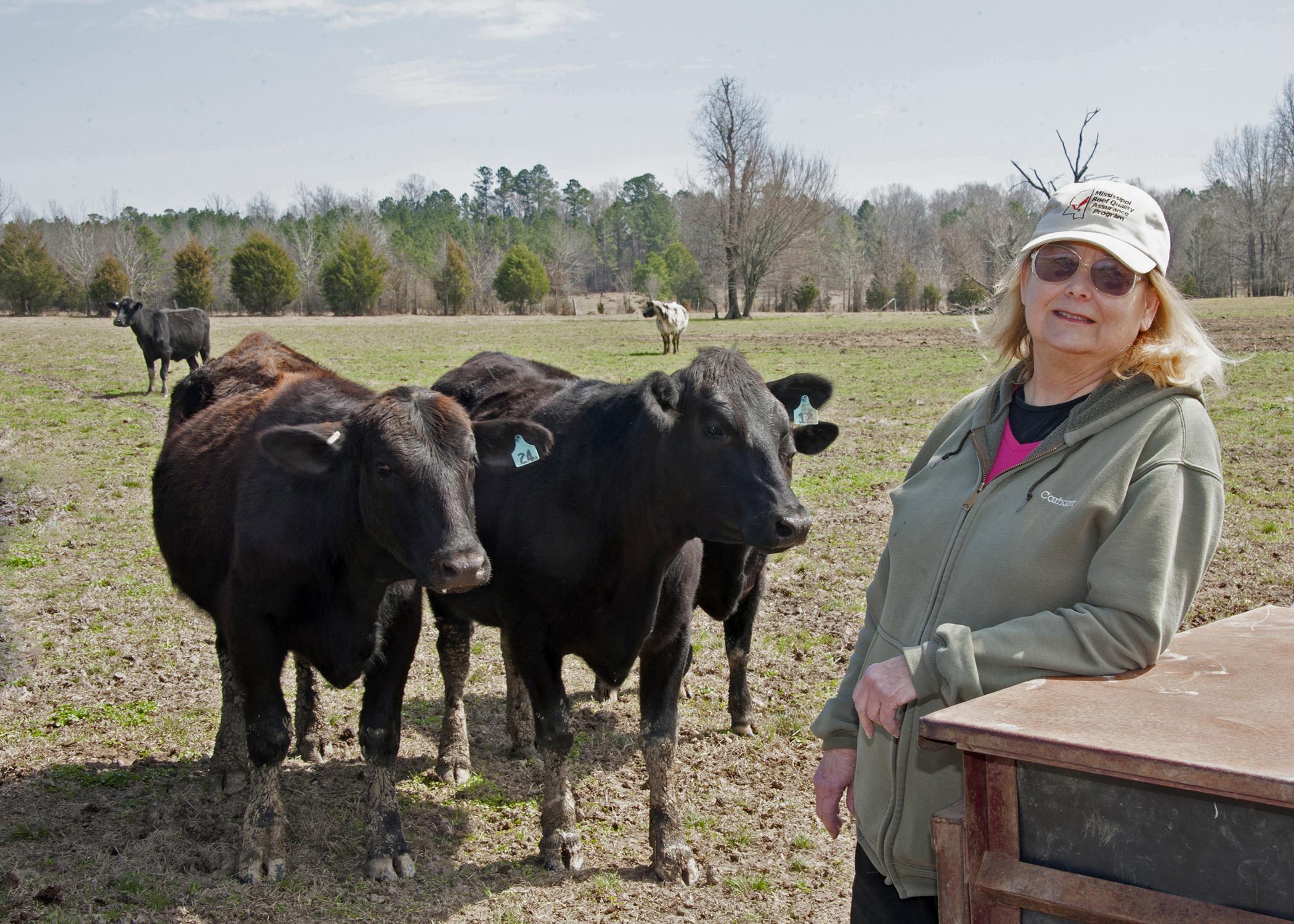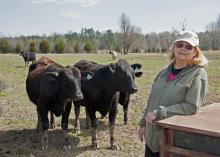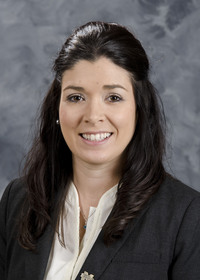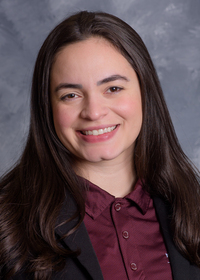Information Possibly Outdated
The information presented on this page was originally released on March 21, 2014. It may not be outdated, but please search our site for more current information. If you plan to quote or reference this information in a publication, please check with the Extension specialist or author before proceeding.
Starkville woman impacts ag with cow-calf operation
MISSISSIPPI STATE -- Mary Jane Coign, of Starkville, is no newcomer to the agricultural industry -- or the challenges women face in it.
Coign grew up on a farm as one of four daughters, and her father trained her and her sisters to help with farm chores out of necessity. These skills eventually paid for most of her college tuition at Mississippi University for Women.
“Back then, there were so many women who really had no involvement in the farm,” she said. “My grandmothers never went outside to farm; my grandfathers would pick the stuff in the garden and bring it in to them. But when push comes to shove, you have to learn to do whatever has to be done. My daddy was adamant that girls could learn to do whatever boys could do.”
When her grandfather died, Coign’s grandmother recruited her to feed the beef cows. Coign later started a herd with a heifer her grandmother gave her and sold the herd to pay for college, where she majored in chemistry. She has owned and run her own cow-calf operation for 33 years.
After graduating, she began working for Mississippi State University as a research chemist with a focus on agricultural and environmental concerns. Coign said she found that women in agricultural fields face challenges even outside of the farm. While she was working at MSU, human resources officials discovered female chemists at MSU were earning substantially smaller incomes than male chemists.
“I worked at MSU for 35 years, and only after being there 30 years did the human resources department look around and realize women were making less than men in the department,” Coign said. “So the professional women staff at MSU got a tremendous raise to bring them up to the same level as the men. That just shows the uphill battle women have to fight in all aspects of it, not just farming.”
After starting her cow-calf operation in 1980, Coign said she and her business partner began attending Farm Bureau meetings, Cattlemen’s Beef Association meetings and workshops on farming -- and were often the only two women in the room.
“In the last 20 years, it has really changed, though,” Coign said. “We are starting to see women in all aspects of agriculture, which I think is just really great. Nationwide, about 30 percent of farms are owned and operated by women now, and in the Mississippi Delta, 61 percent of land is owned by women. That goes to show the increasing impact women are making on this industry.”
Despite the growing number of women involved in agriculture, Coign said challenges still exist. Several years after opening her cow-calf operation in Starkville, Coign said she applied for a loan to finance a mortgage on the property and was shocked when a loan officer told her farming was a man’s job.
“He told me that women have no business owning land or farming; he said that to my face,” she said. “I just got up and walked out and got my loan from another bank.”
Even though obstacles arise, Coign said the rewards of running her own operation ultimately outweigh any challenges.
“There’s just nothing better than going down to the barn in the mornings and seeing a cow with a brand-new calf,” she said. “It’s a lot of work, but it’s also a whole lot of fun.”
Julie White, Oktibbeha County Extension agent, has worked closely with Coign on FARMtastic projects. FARMtastic is an agricultural education program for third-graders that emphasizes the importance of agriculture to daily life.
“Mary Jane has been instrumental in helping build and coordinate the Enchanted Forest station for FARMtastic,” White said. “Mary Jane is definitely setting an example for other women involved in agriculture. She is active and vocal in commodity groups and training to learn new techniques that allow her to be more efficient in her operation.”






